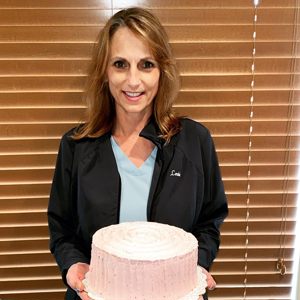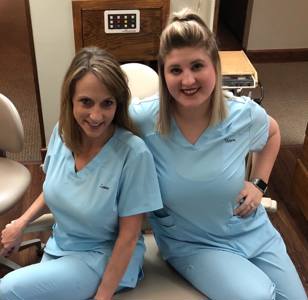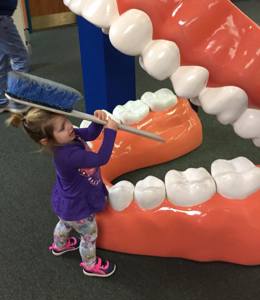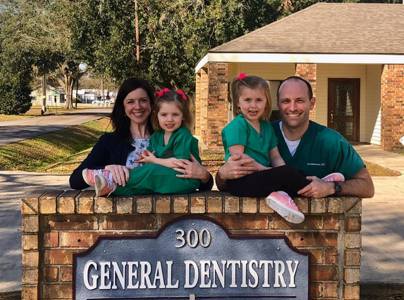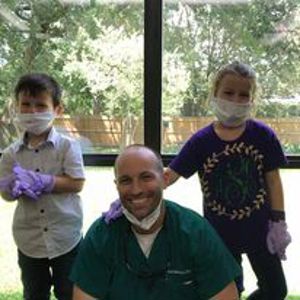Root Canal Therapy
Root canals made comfortable: Experience expert care and relief, restoring your smile from the root up!
Root Canal - What it is and Why You May Need One. The Easy Guide to Understanding Them
When a tooth becomes infected or is badly decayed, then a root canal is a treatment employed to repair and save it. A soft tissue called the pulp is inside the tooth and in a hard layer called the dentin, which is under the white enamel. Helping grow the root of your tooth during development, the pulp contains nerve and connective tissue and blood vessels. A tooth continues to be nourished by the tissues surrounding it, even without the pulp, because a fully developed tooth can survive without it.
After a tooth has grown through the gums, its nerve is not essential to the tooth’s health. Providing the sensations of hot or cold is its only function, a sensory one. The day-to-day functioning of the tooth will not be affected by the presence or absence of a nerve.
Reasons for a root canal
If there is damage to the pulp or nerve tissue, it will grow rampantly within the pulp chamber as it breaks down. The end of the roots of a tooth will form a puss-filled pocket called an abscess or an abscessed tooth. This and an infection can be caused in the tooth if bacteria and other decaying in it.
Situations like trauma to the face, a chip or crack in a tooth, large fillings, repeated dental procedures on a tooth, or deep decay can cause a tooth’s pulp and nerve to become infected or irritated and inflamed.
A root canal becomes necessary when a nerve has been affected.
What Are the Signs a root canal is Needed?
Even though there are sometimes no evident symptoms, below are some signs that may indicate a root canal is needed:
- A recurring or persistent pimple on the gums
- Tenderness and swelling in nearby gums
- Darkening or discoloration in the tooth
- Prolonged pain or sensitivity to cold or hot temperatures (after the heat or coldness has been removed)
- Severe toothache pain when applying pressure or chewing
What Happens During a Root Canal?
A dentist or an endodontist (a dentist who is a specialist in the treatment of injuries and diseases of the nerve of the tooth or the human dental pulp, and their diagnosis, causes and prevention) can perform root canals, and they require one or more office visits.
Taking an x-ray to determine the condition of the canal of a root, and see if there is any surrounding bone infection, is the first step in the root canal procedure.
To numb the area near the tooth, we will use local anesthesia next and place a rubber dam (a sheet of rubber) around the tooth to keep the site dry and free of saliva during your treatment.
The next step is to clean the pulp of decay and bacteria by making an access hole in the tooth. We use the root canal files to accomplish the cleaning out process and flush away the debris by using sodium hypochlorite or water periodically.
To keep out contaminants such as food and saliva in between dental appointments, we place a temporary filling in the exterior hole in case the root canal procedure is not completed on the first visit. Then it is sealed when it is thoroughly cleaned.
A rubber compound called gutta-percha and a sealer paste are placed in the tooth’s root canal in the second appointment to fill the tooth’s interior. A filling is placed to fill the exterior hole created at the treatment’s beginning.
To protect a tooth with extensive decay or other weakness or a large filling, a post and crown or other restoration may be needed.
Does It Hurt?
With most patients, this probably is the number one question they ask. They think there will be a lot of pain associated with this procedure, and most people panic when they hear the words “root canal”!
The relief of pain is what a root canal is designed to accomplish. We can now do this procedure while you remain in total comfort because of sedation dentistry and new technology. You never again need to fear a root canal.
Don’t allow pain to keep you from doing what you love and enjoying your life. Please call our office today if you have dental pain and need help.
Sedation Dentistry
For your convenience, we offer these three types of comfort and sedation dentistry:
Nitrous Oxide
This “laughing gas,” as most people know it, is used for simple fillings or routine cleaning treatments and is the most common form of sedation. Thanks to this simple form of sedation, your entire dental treatment can be a relaxing experience.
Sedation By IV
During IV Sedation, the patient’s vital signs are monitored throughout the entirety of the procedure, as the sedation is administered via IV. The patient will have been sleeping during the entire process, in this case, and will awaken only after the procedure.
Suppose a patient must return to school or work after completing the procedure. In that case, it will be especially beneficial for them to understand their need for sufficient recovery time before they leave.
Conscience Oral Sedation
We currently offer oral sedation for our patients who wish to remain conscience and yet come to us with gagging problems or a higher than average amount of fear and anxiety. Throughout the entire procedure, we closely monitor their vital signs once giving a combination of oral medications.
Once taking the oral medication we provide, the patient becomes highly relaxed and drowsy, and after their appointment, most patients remember nothing of the fear or anxiety they may have thought to experience without.
You will not be put to sleep with oral sedation, and during the entire procedure, you will be able to respond to Dr. Melancon and his team.
Specials
In Pain?
Patients who self-pay and contact us due to pain, such as those requiring root canal treatment, fillings, or crowns, will incur a $75 charge for their appointment. This fee encompasses the examination and x-ray essential for diagnosis. Excludes patients with dental insurance.
Need a Cleaning?
New patients, paying out of pocket, who schedule a cleaning will be charged $175 for a basic cleaning. This fee covers an examination, two sets of x-rays, and a regular cleaning. Excludes deep cleaning procedures and patients with insurance.
Need an Extraction?
New patients, paying out of pocket, requiring an extraction will incur a charge of $205. This includes the cost of X-rays, an examination, and the extraction procedure itself. Excludes patients with insurance.
© Melancon Family Dentistry 2026 | Sitemap
Medical Website Designed & Developed by





